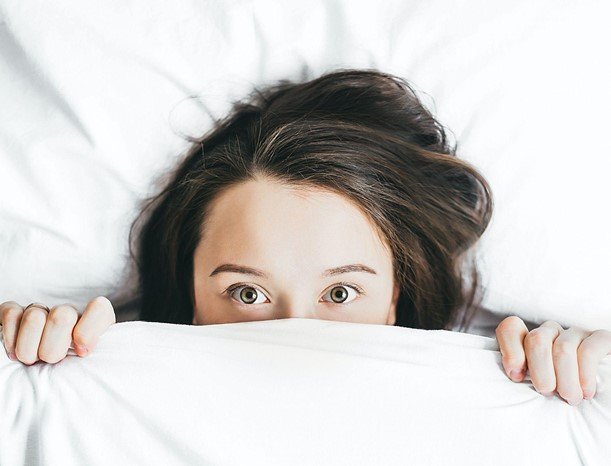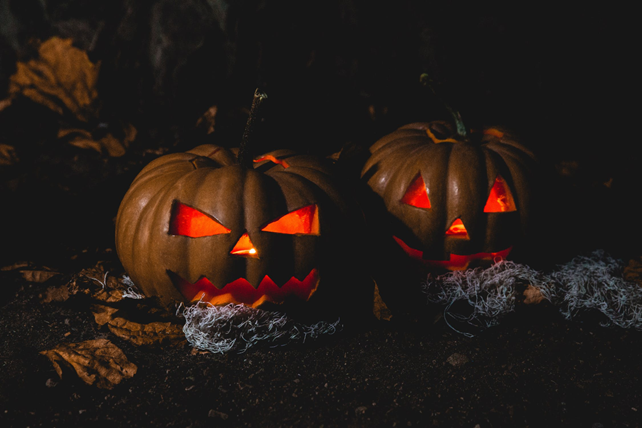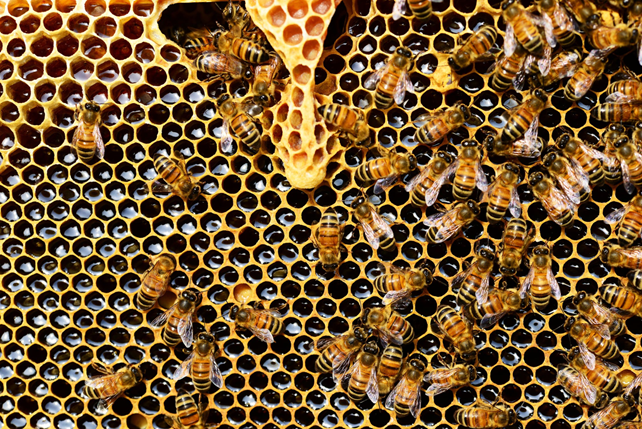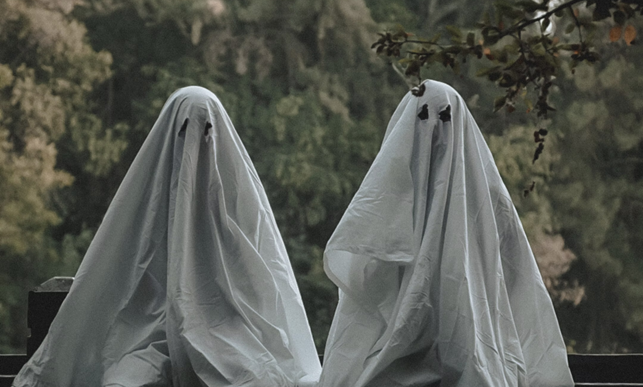The nightmares and phobias keeping Brits awake at night
Sleep is integral to our survival but that doesn’t mean it is easy for everyone. Never mind those that are kept awake by insomnia or young children, some are sabotaged when they actually manage to reach the land of nod by being confronted by a nightmare.
But what are people having nightmares about? We have conducted some research to find which nightmares people are searching for information about the most over the past 12 months in the UK.
To help those who are being kept awake at night by phobias we’ve also enlisted the help of our resident sleep expert Dr Lindsay Browning to provide some top tips on how to manage your fears.

Most searched for nightmares and what the top three (supposedly) mean
Rank Keywords Searches in past 12 months 1. Zombies 2,960 2. Teeth Falling Out 2,270 3. Demons 1,680 4. Snakes 1,020 5. Being Chased 960 6. My Ex 820 7. Death 710 8. Falling 680 9. Ghosts 670 10. Partner Cheating 570 11. Drowning 470 12. Work 370 13. Aliens 360 13. Spiders 360 14. Getting Shot 230 15. Being Murdered 200 16. Fire 150 17. Someone Dying 120 17. Cheating On Boyfriend 120 17. Home Invasion 120 18. Elevator 110 18. Dog Attack 110 1. Zombies
The most searched for nightmare of the past 12 months was about Zombies. When the pandemic hit there was a lot of scaremongering around the virus and zombies.
Nightmares about zombies however are not indicative of a nightmare about the actual living dead. These dreams can mean that the person having them is under tremendous pressure and stress in their waking life. You do not know what is going on and you have trouble accepting reality.
Aside from stress, a zombie dream could also indicate feeling a lack of control in life. Something big in the dreamer’s life may be coming to an end, and they’re feeling a little lost and unsure about what the future will bring.
2. Teeth Falling Out
The second most searched for nightmare over the past 12 months was teeth falling out. Dreams about broken teeth falling out can be interpreted in different ways. These dreams are usually indicative of a period of self-doubt, frustration, or fear. Dreams about broken teeth are common and usually a symbol of vulnerability.
Some scientific studies have revealed however that dreams about teeth could be rather literal and a sign that a trip to the dentist is in order.
3. Demons
The third most common nightmare was about demons, which received over 1600 searches over the past 12 months in the UK. Dreaming about evil entities is usually a symbol of repressed guilt and internal conflict. If someone has done things that they are not proud about, they might have repressed them, but dreaming of demons signifies that they need to deal with those.
Dreaming about being chased by demons and other evil entities usually indicates an anxiety caused by something from our past.
What is a Nightmare?
Dr Lindsay Browning, psychologist, neuroscientist and our resident sleep expert gives her insight on dreams and nightmares:
“Dreams are our brain’s way of encoding and storing into long term memory storage what we have experienced during the day, and also are our brain’s way of dealing with emotional regulation - helping us to make sense of things that are difficult to think about in our normal daytime life.
Think of dreaming sleep as overnight therapy.
Most commonly, we have nightmares about something that we have not fully processed or dealt with emotionally. Nightmares can even be recurring nightmares – such as in PTSD – where we may repeatedly re-live or dream about the same traumatic event, as our brain repeatedly tries to understand and deal with the trauma.
Another psychological theory about why we have nightmares is that they are designed to give us practice at dealing with a threat (threat simulation). That is, nightmares are designed to help us rehearse potential threatening situations in our sleep so that we know how to deal with them if they were to actually happen – such as being chased by an attacker, not revising for an exam, or arriving to work naked! If you have a phobia of snakes for example then it is likely that you will have a nightmare about facing a snake as your brain's way of practising how it might deal with that.
Since the coronavirus pandemic, we have faced unprecedented challenges, and people have had to deal with significant anxiety and changes to the daily way of living. These changes have given our brains a lot to deal with, and our brains will be processing these changes during our dreaming sleep. A 2021 study of the content of covid pandemic dreaming found that people during the pandemic had more threatening events in their dreams than pre-pandemic dreaming, suggesting that people were rehearsing how to deal with potential threatening events in their dreams.
Since we think that dreams are our brain’s way of dealing with a trauma that we have already faced (as in PTSD) or are there to rehearse a potential problem that we may face in the future (as in being chased, being late for something, failing an exam, etc.), it is likely that the most common content of nightmares is topics that we feel we are most likely going to face in life. Although there are people who say that they can interpret dreams (that the components of your dream can say something deeper about your subconsciousness), psychologists do not believe that the content of your dreams is as relevant as the emotion behind it.”
Spooky nightmares spike around Halloween

Our recent study revealed that Nightmares are in the top 20 things keeping the UK up at night, with over 1 in 10 claiming they regularly keep them awake at night.
We’ve all experienced nightmares but often it’s difficult to pinpoint exactly what’s caused them - our research has revealed halloween could really be a contributing factor to many! Having analysed search data from Google on more than 16,000 searches around nightmares over the past year, we discovered Brits have had the most night terrors about zombies and things really come to a head around Halloween.
Last October searches for the ghoulish creatures increased by a huge 48% compared to September and November. Although nightmares about ghosts didn’t make the top five, there was a clear spike in searches related to this topic also. Overall, there was a 17% increase in searches for ‘nightmares about ghosts’ and ‘nightmare about ghost’ in the four-week period before Halloween compared to the four week period either side of this. Terrors about demons and aliens also ranked in the top 11 most common nightmares…..spooky stuff! In total, searches for nightmares of all kinds increased by 8% in the build-up to Halloween last year.
What to do if you are struggling with nightmares
Lindsay adds: “If people are struggling with nightmares or bad dreams there is something that you can do to help stop them. Professor Justin Havens has developed the “dream completion technique” where you learn how to change the bad dream into a good dream.”
You can watch a step by step how-to video here on YouTube:

A hole lot of the UK are afraid of this…

As Dr Lindsay Browning mentioned, phobias can sometimes be the triggers for nightmares, but what are the UK afraid of?
An analysis of the monthly searches around “fear of” “phobia of” and generally related terms to “phobia” discovered that Trypophobia was the most searched phobia with 2.7 million annual searches. This phobia centres around a fear of hole clusters such as a lotus seed head, natural sponge or honeycomb.
In 2016 Kendal Jenner revealed she suffers from this phobia and the 2017 season of American Horror Story, Cult, focused on this as one of the protagonist’s phobias (alongside others in the list such as Coulrophobia)- both of which are real phobias of Sarah Paulson who plays the protagonist.The second in the list is Plasmaphobia (also known as Phasmophobia), a fear of ghosts, which receives around 1.6 million annual searches in the UK.
Third is Thalassophobia with 420k searches over the past 12 months, this is a fear of the ocean. Although on the surface the ocean doesn’t seem like something people could be fearful of, only 5% of the ocean has been explored by humans, and with it taking up 70% of the earth’s surface it becomes easier to understand this as a phobia.
Rank Phobia A fear of... Annual UK searches 1. Trypophobia small holes 2,726,400 2. Plasmaphobia ghosts 1,620,000 3. Thalassophobia the ocean 420,000 4. Emetophobia vomiting 397,200 5. Euphobia good news 266,400 6. Arachnophobia spiders 264,000 7. Acrophobia heights 260,400 8. Hippopotomonstrosesquippedaliophobia long words 236,400 9. Trypanophobia needles 207,600 10. Coulrophobia clowns 169,200 11. Megalophobia large objects 145,200 12. Nyctophobia darkness 140,200 Plasmaphobia (the fear of ghosts) is the most searched for phobia in the build-up to Halloween

Getting a good night’s sleep can be a challenge at the best of times, let alone in the build-up to Halloween as our minds wander to devilish ghosts and haunted houses. For some people though, sleepless nights go well beyond a spooky nightmare - they’re actually linked to phobias. With our recent research revealing 1 in 20 Brits are kept awake at night by phobias we thought we’d unearth the most common fears people are battling and how this changes as Halloween approaches.
Perhaps unsurprisingly in a month which is dominated by tales about things that go bump in the night, the phobia people searched about the most in October 2020 was Plasmaphobia - the fear of ghosts (also known as Phasmophobia). Searches of this rose to 550,000 around Halloween, an increase of 339% compared to September and November.
Although searches for trypophobia (the fear of small holes) and related searches including ‘phobia of holes’, ‘phobia about holes’ and ‘phobia for holes’ were the second most frequent in October last year, searches for arachnophobia (the fear of spiders) were the third highest out of all phobias. In total, there were 29,900 searches for arachnophobia and related terms including ‘fear of spiders’ and ‘phobia of spiders’ in October - that’s an increase of 26% compared to September and November 2020. Creepy-crawlies are quite terrifying after all!
Top 12 most common phobias during October last year
Rank Phobia (including related searches) The fear of Number of searches 1. Plasmaphobia (a.k.a Phasmophobia) Ghosts 550,000 2. Trypophobia Small holes 245,500 3. Arachnophobia Spiders 29,900 4. Emetophobia Vomiting 27,100 5. Thalassophobia Water 25,700 6. Acrophobia Heights 23,200 7. Hippopotomonstrosesquippedaliophobia Long words 19,700 8. Coulrophobia Clowns 19,600 9. Trypanophobia Needles 15,500 10. Euphobia Good news 14,800 11. Megalophobia Large objects 14,800 12. Nyctophobia Darkness 13,500 Searches around phobias increase by 82% around Halloween
From vampires to tombstones, there’s no shortage of triggers which may set off a phobia during the spooky season. To try and get a better understanding of the most common phobias and how they impact people, we used Keyword Tool to analyse more than 10 million searches around the most frequently discussed phobias.
Having crunched the numbers, we discovered over the course of the last year there have been an average of 826,000 searches per month relating to phobias - that’s just less than a whopping 30,000 searches per day. While many phobias aren’t linked directly to Halloween we discovered that last year there was a huge spike in searches as October 31st approached - a trend we can expect to see again this year. All in all, queries around phobias of all kinds increased by a staggering 82% in October 2020 compared with September and November.
If your only nightmare is the discomfort of your current mattress, take a look at our range of luxury mattresses from big brands such as Vispring and Tempur.
Methodology
UK Google search volumes for phrases such as “nightmares about” “bad dreams about” and “X nightmare” were recorded and analysed to discover the nightmares being searched for the most.
The same method was applied to discover the most searched for Phobias.
- 21st October 2021


